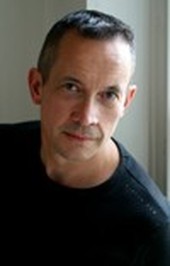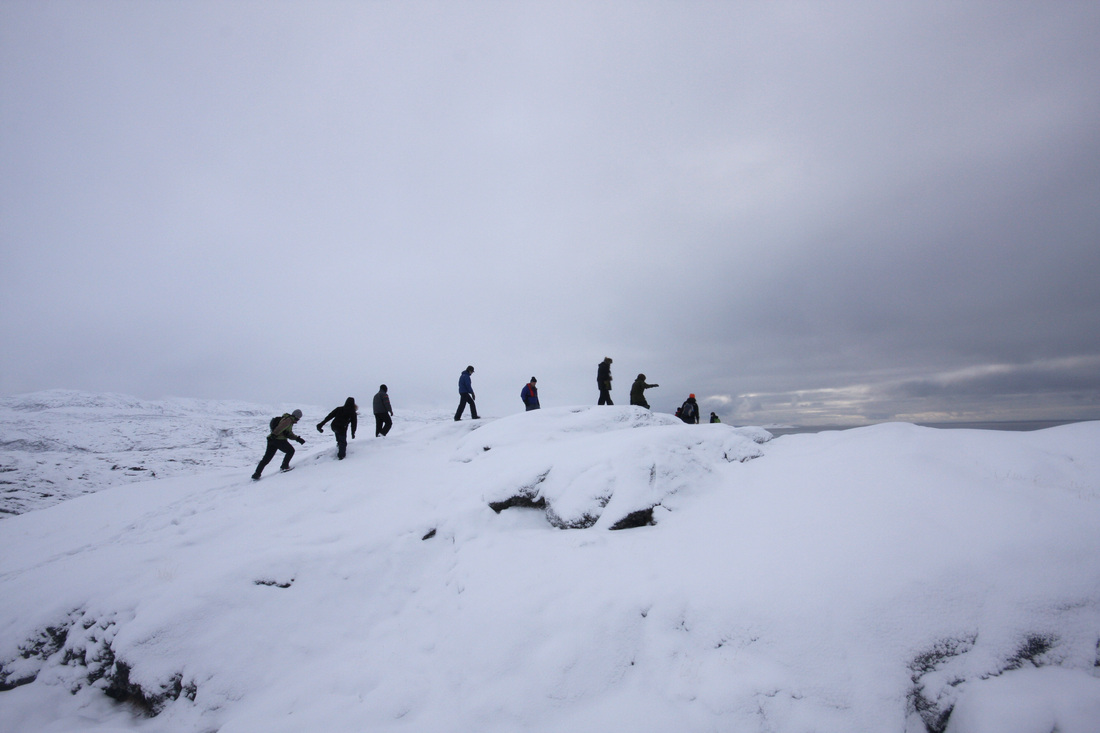 photo: Andrew Palmer
photo: Andrew Palmer
As composer Jonathan Dove prepares for the premiere of his Gaia Theory at the BBC Proms this week, he took time out to explain how his recent work has been inspired by an Arctic voyage that proved something of a wake-up call.
Jonathan is perhaps best known for his popular and family operas on a diverse range of subjects from Pinocchio to the death of Diana, Princess of Wales. I asked him when concern for the environment started to influence his work?
"In September 2008, I found myself on the Grigory Micheev, sailing among icebergs and glaciers off the west coast of Greenland, in the company of a diverse group of musicians, artists and scientists.
"I was gazing at landscapes of mysterious beauty, but gradually the message was sinking in that nothing was as it should be."
He had been invited by David Buckland, artist and founder of Cape Farewell, to witness the effects of climate change at first hand. He found himself sharing the experience with other well-known artists including Jarvis Cocker, Marcus Brigstocke and KT Tunstall.
Jonathan is perhaps best known for his popular and family operas on a diverse range of subjects from Pinocchio to the death of Diana, Princess of Wales. I asked him when concern for the environment started to influence his work?
"In September 2008, I found myself on the Grigory Micheev, sailing among icebergs and glaciers off the west coast of Greenland, in the company of a diverse group of musicians, artists and scientists.
"I was gazing at landscapes of mysterious beauty, but gradually the message was sinking in that nothing was as it should be."
He had been invited by David Buckland, artist and founder of Cape Farewell, to witness the effects of climate change at first hand. He found himself sharing the experience with other well-known artists including Jarvis Cocker, Marcus Brigstocke and KT Tunstall.
“Were you already a committed environmentalist at that point?”
"I suppose I was averagely aware of the issues, as much as anyone who watched the news, say. But spending time with other artists and a team of scientists made me understand the scale and the detail of the problem.
“We were accompanied by a team of scientists and listened to their expert accounts of how the glaciers were retreating, wildlife was disappearing, and local people could no longer cross the sea-ice to hunt.
“I was the only classical composer on board, so I was mostly sketching ideas and trying a few things out, for use later. The others were writing songs and poems, or painting there and then, and it all went straight into albums and shows when they got back.”
"I suppose I was averagely aware of the issues, as much as anyone who watched the news, say. But spending time with other artists and a team of scientists made me understand the scale and the detail of the problem.
“We were accompanied by a team of scientists and listened to their expert accounts of how the glaciers were retreating, wildlife was disappearing, and local people could no longer cross the sea-ice to hunt.
“I was the only classical composer on board, so I was mostly sketching ideas and trying a few things out, for use later. The others were writing songs and poems, or painting there and then, and it all went straight into albums and shows when they got back.”
...our present state - a lost Eden
|
|
Dove took his time over finding the right response. The first work to emerge was The Walk from the Garden, premiered at the Salisbury International Arts Festival in 2012. It was a re-telling of the biblical expulsion of Adam and Eve from Eden. “I saw it as an allegory for our present state – a kind of lost Eden.”
I asked if this was a typical approach. |
“I’ve just been finishing another work that takes a story from the past to illustrate the present. I’ve called it The Day After [to be staged by Holland Opera in June next year] and it’s based on the ancient myth of Phaethon and his calamitous attempt to take control of his father’s sun-chariot, placing life on Earth at risk.
"I saw in the hubris of the boy much that I see in post-industrial man." says Dove. “There’s something powerful about retelling stories in the context of today’s preoccupations. I write music I would want to hear, so I wouldn’t write something that was a kind of lecture or sermon, or a documentary.”
"I saw in the hubris of the boy much that I see in post-industrial man." says Dove. “There’s something powerful about retelling stories in the context of today’s preoccupations. I write music I would want to hear, so I wouldn’t write something that was a kind of lecture or sermon, or a documentary.”
Compositional challenges
We talked about the compositional challenges of representing the simultaneous vastness and tininess of the Earth and its intricate detail. "Take respiration," he suggests. "Some organisms breathe many times a second, a forest has a daily respiratory cycle, while recent research suggests the Earth itself ‘breathes' once a year."
“The Walk from the Garden carried an explicit environmental message,” I suggested “will that be true for Gaia Theory or is it more a reflection on an elegant theory for audiences to make of what they will. And would it matter if they didn't get the message?”
"I have no pretentions that my music can change the world..."
“But can it change the way people feel about the world?”
“A useful role for art is to help prepare for change and give the energy for change. If someone comes away thinking more deeply about these things after hearing my own response, that would be perfect."
Laurence Rose
Jonathan Dove’s Gaia Theory receives its world premiere at the BBC Proms on 28 July, at the Royal Albert Hall, London, and will be broadcast live on BBC Radio 3. It will be broadcast on BBC4 TV on 1 August and both programmes will be available for 30 days on the BBC iPlayer.

 RSS Feed
RSS Feed
